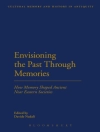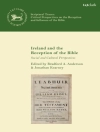The emergence of a vibrant imperial culture in British society from the 1890s both fascinated and appalled contemporaries. It has also consistently provoked controversy among historians.
This book offers a ground-breaking perspective on how imperial culture was disseminated. It identifies the important synergies that grew between a new civic culture and the wider imperial project.
Beaven shows that the ebb and flow of imperial enthusiasm was shaped through a fusion of local patriotism and a broader imperial identity. Imperial culture was neither generic nor unimportant but was instead multi-layered and recast to capture the concerns of a locality. The book draws on a rich seam of primary sources from three representative English cities. These case studies are considered against an extensive analysis of seminal and current historiography. This renders the book invaluable to those interested in the fields of imperialism, social and cultural history, popular culture, historical geography and urban history.
Mục lục
General Editor’s introduction
Introduction
1. Cities in context: Civic culture, new journalism and the creation of local and imperial identities, 1870–1939
2. The city and the imperial mission 1850–1914
3. Civic ceremony and the citizen-soldier during the Boer War, 1899–1902
4. fragmenting communities: Patriotism, empire and the First World War
5. Educating the future citizens of empire: Working-class schooling c. 1870–1939
6. Transmitting the imperial message: Empire Day and the 1924 Wembley Exhibition
7. Mass entertainment, popular culture and imperial societies, 1870–1939
Conclusion
Appendix 1: Principal newspapers in Portsmouth, Coventry and Leeds c. 1800 to 1940′
Appendix 2: A sample of theatre, music hall and cinema entertainment in Portsmouth, Coventry and Leeds 1870–1939
Bibliography
Index
Giới thiệu về tác giả
Brad Beaven is Principal Lecturer in History at the University of Portsmouth












